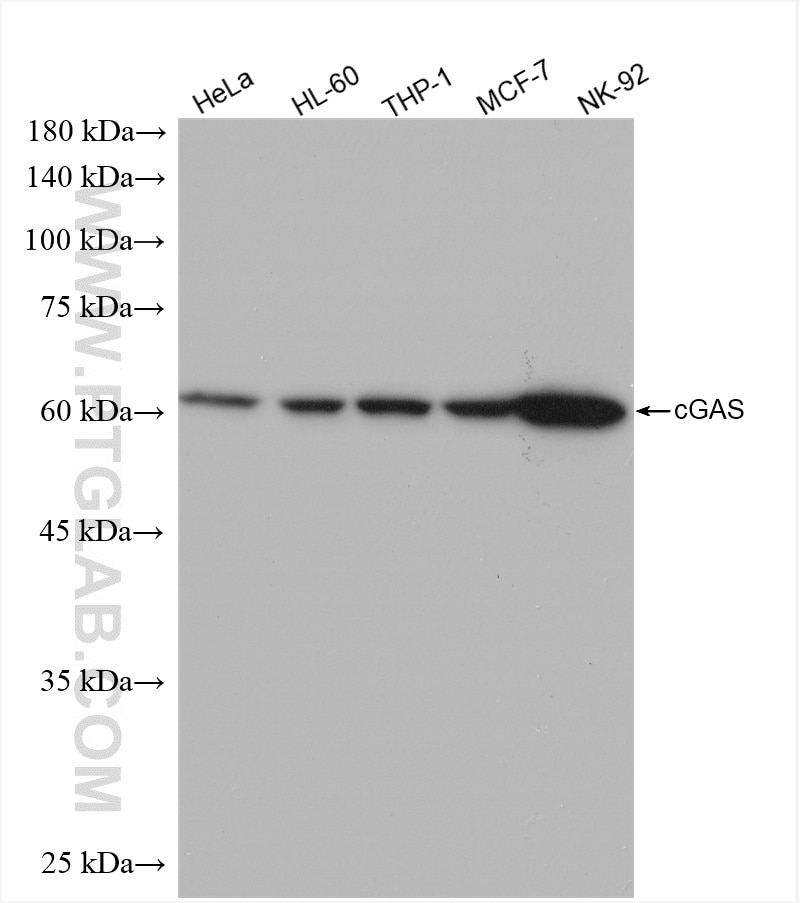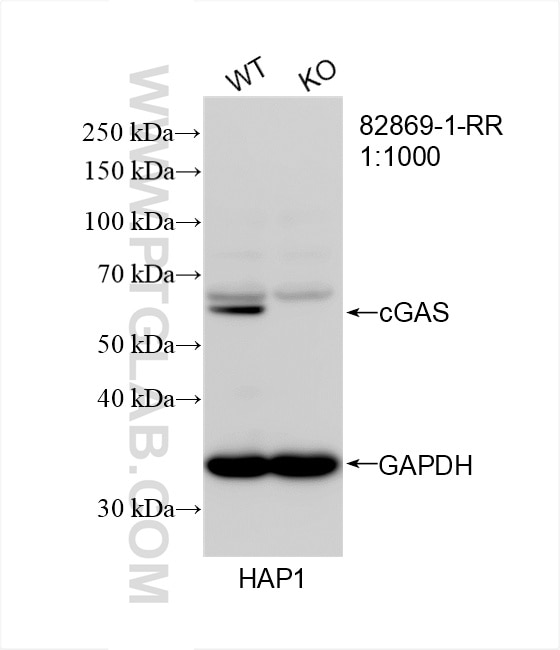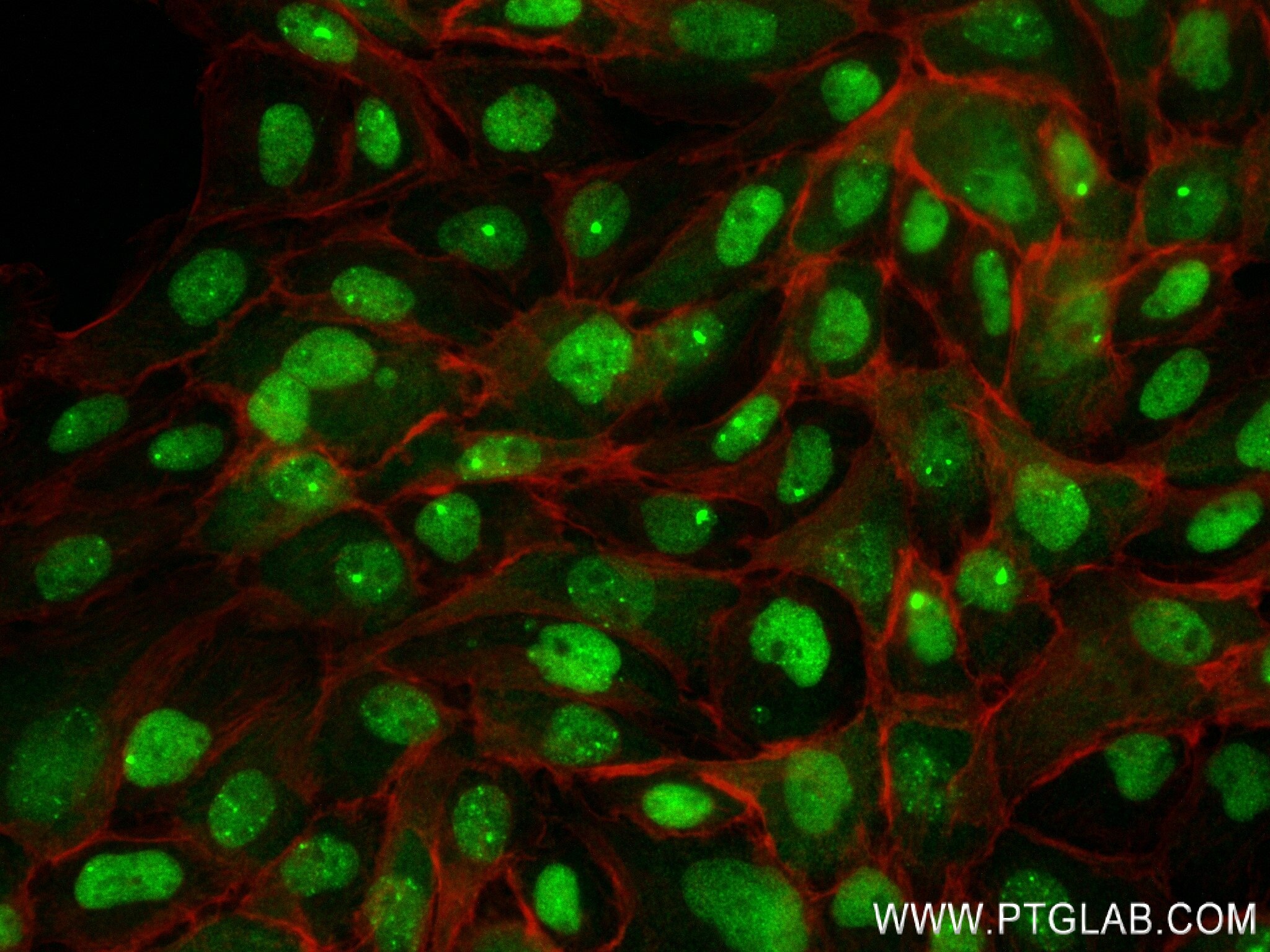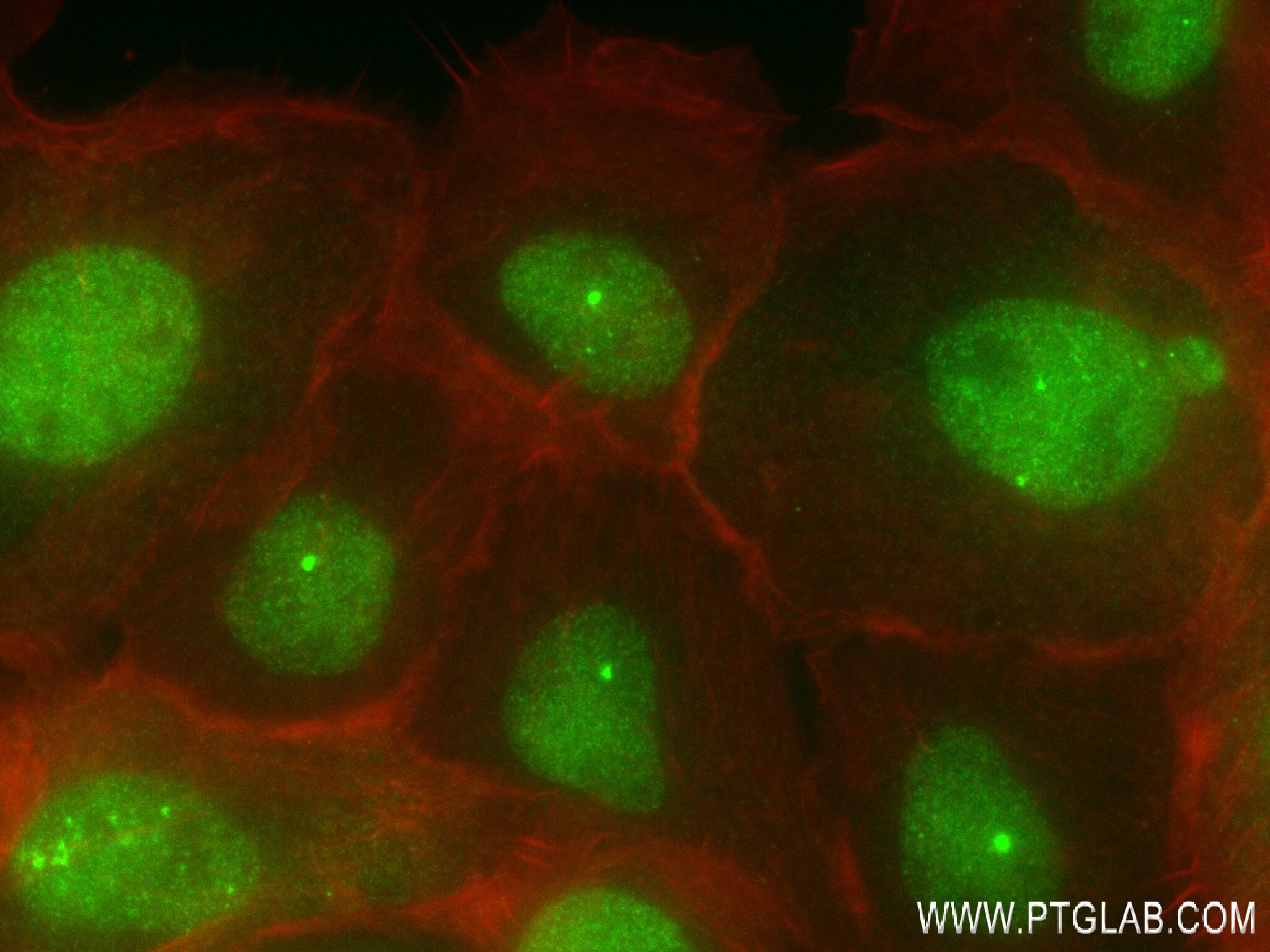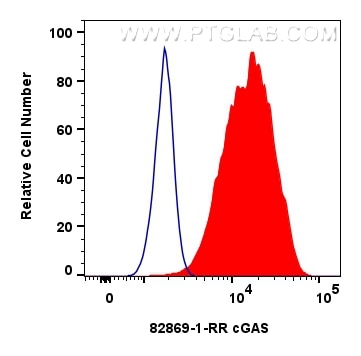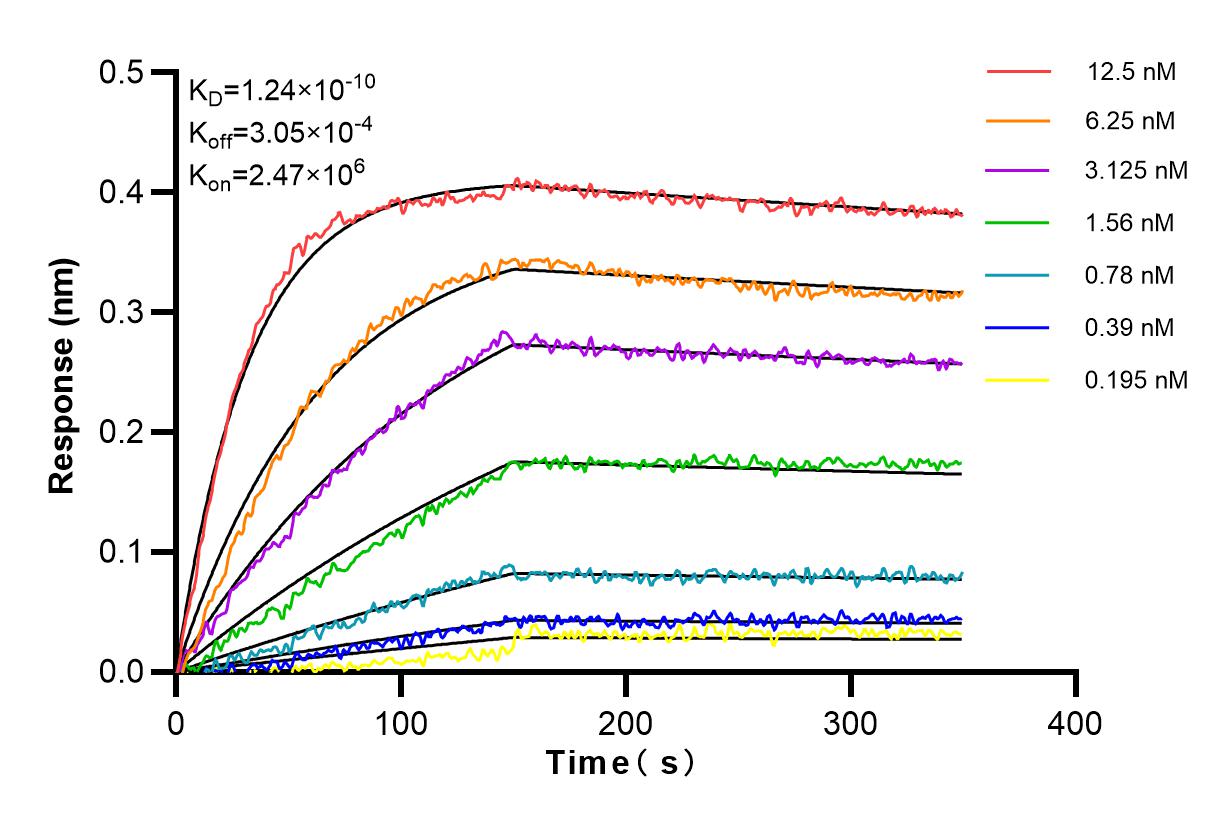Validation Data Gallery
Tested Applications
Recommended dilution
| Application | Dilution |
|---|---|
| It is recommended that this reagent should be titrated in each testing system to obtain optimal results. | |
Product Information
82869-1-PBS targets cGAS in WB, IF/ICC, Indirect ELISA applications and shows reactivity with human samples.
| Tested Reactivity | human |
| Host / Isotype | Rabbit / IgG |
| Class | Recombinant |
| Type | Antibody |
| Immunogen | cGAS fusion protein Ag23455 相同性解析による交差性が予測される生物種 |
| Full Name | chromosome 6 open reading frame 150 |
| Calculated molecular weight | 496 aa, 54 kDa |
| Observed molecular weight | 62 kDa |
| GenBank accession number | BC113608 |
| Gene Symbol | cGAS |
| Gene ID (NCBI) | 115004 |
| Conjugate | Unconjugated |
| Form | Liquid |
| Purification Method | Protein A purification |
| UNIPROT ID | Q8N884 |
| Storage Buffer | PBS only{{ptg:BufferTemp}}7.3 |
| Storage Conditions | Store at -80°C. |
Background Information
cGAS (Cyclic GMP-AMP synthase), also known as C6orf150 or h-cGAS, is a 522 aa protein. cGAS mediates innate immune responses against invading pathogens, or against self-dsDNA, which causes autoimmune disorders. The cGAS sensor not only recognizes cytosolic dsDNA but also synthesizes the second messenger cGAMP from ATP and GTP, which then binds to and activates STING. STING undergoes conformational changes and translocation from the endoplasmic reticulum to the Golgi apparatus to encounter TBK1 and IRF3, eventually triggering the production of type I IFNs.
